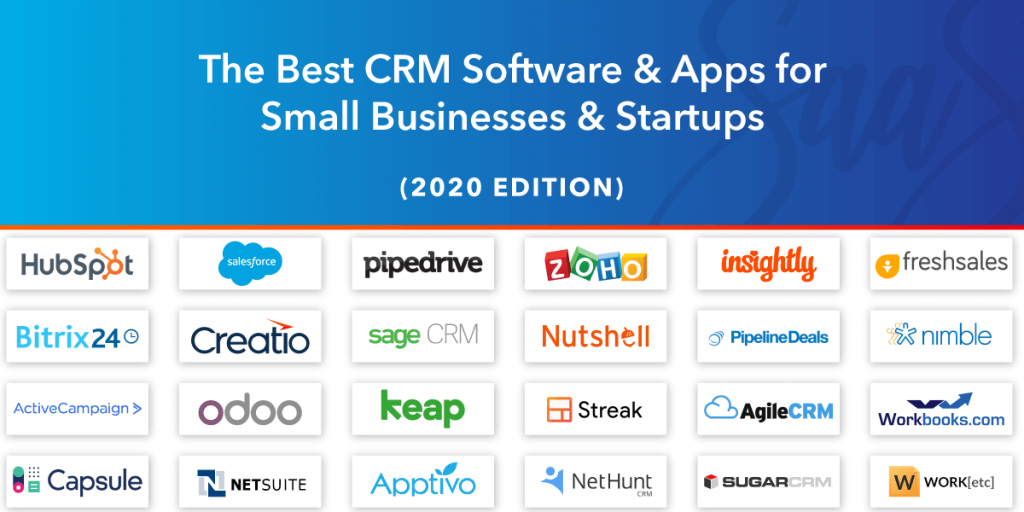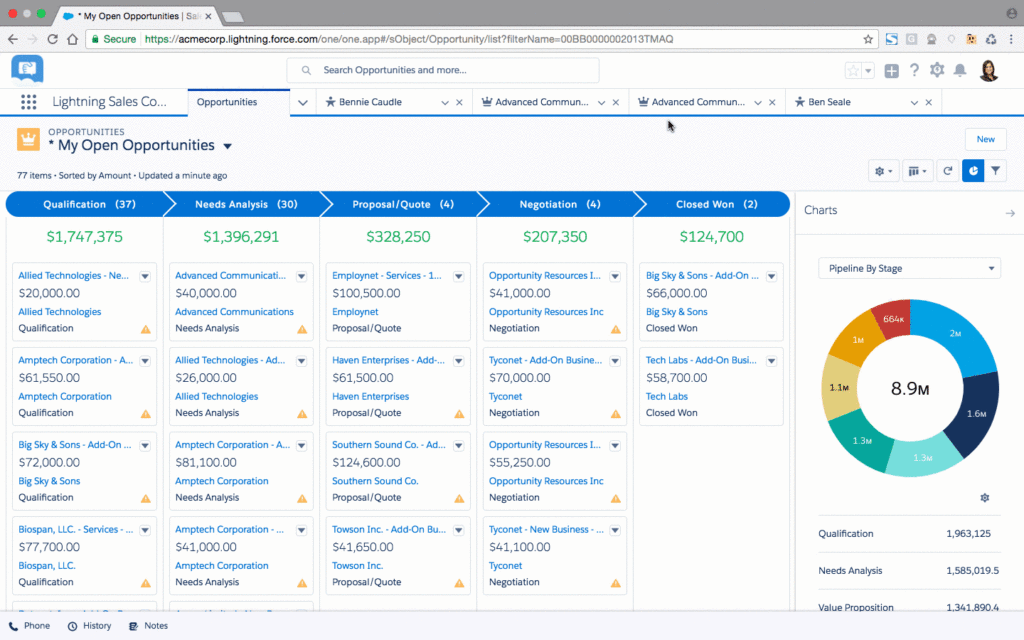As top CRM tools in market take center stage, this guide beckons you into a world of customer relationship management. With a casual formal language style, we’ll explore the current market landscape, compare essential features, and guide you through the selection process to find the perfect CRM tool for your business.
From boosting efficiency to quantifying ROI, discover the transformative power of CRM tools and how they can revolutionize your customer interactions.
Top CRM Tools in the Market
Customer relationship management (CRM) tools have become essential for businesses of all sizes. They help businesses track customer interactions, manage sales pipelines, and provide customer support. The CRM market is highly competitive, with a wide range of vendors offering a variety of features and pricing options.
The top CRM tools in the market include Salesforce, HubSpot, Microsoft Dynamics 365, Oracle NetSuite, and SAP Hybris. These tools offer a comprehensive set of features, including contact management, lead tracking, sales forecasting, and customer support. They also integrate with a variety of other business applications, such as marketing automation, e-commerce, and accounting.
Market Landscape
The CRM market is growing rapidly, as businesses increasingly recognize the importance of customer relationship management. According to a report by Gartner, the CRM market is expected to reach $69.7 billion by 2028. The growth of the CRM market is being driven by a number of factors, including the increasing adoption of cloud-based CRM solutions, the growing use of mobile devices, and the increasing demand for customer analytics.
Top CRM Tools
- Salesforce
- HubSpot
- Microsoft Dynamics 365
- Oracle NetSuite
- SAP Hybris
These are just a few of the top CRM tools available on the market. When choosing a CRM tool, it is important to consider the specific needs of your business. Factors to consider include the size of your business, the number of users, the features you need, and your budget.
Features and Capabilities of CRM Tools

CRM tools offer a comprehensive suite of features and capabilities designed to streamline customer interactions, improve productivity, and enhance overall business performance.
These tools vary in their offerings, but the essential features typically include:
- Contact Management:Centralized storage and organization of customer information, including contact details, demographics, and interaction history.
- Lead Management:Tracking and qualifying potential customers through the sales pipeline, nurturing them towards conversion.
- Sales Automation:Streamlining sales processes, automating tasks such as lead assignment, scheduling appointments, and sending follow-up emails.
- Customer Service Management:Managing customer support requests, tracking interactions, and resolving issues efficiently.
- Reporting and Analytics:Generating reports and dashboards to analyze customer data, track performance, and identify areas for improvement.
- Integration with other Business Systems:Connecting CRM tools with other business applications, such as ERP, accounting, and project management systems, to create a seamless flow of information.
li> Marketing Automation:Creating and executing marketing campaigns, automating tasks such as email marketing, social media management, and lead generation.
The specific features and capabilities offered by different CRM tools vary depending on the provider and the target market. Some tools specialize in specific industries or business functions, while others offer a more comprehensive suite of features.
Comparing Features of CRM Tools
When comparing different CRM tools, it is important to consider the specific features and capabilities that are most relevant to your business needs. Some factors to consider include:
- Industry-specific Features:Determine if the CRM tool offers specialized features tailored to your industry, such as healthcare, manufacturing, or financial services.
- Scalability:Consider the size of your business and the potential for future growth. Choose a CRM tool that can scale with your needs and support your business as it grows.
- Integration Capabilities:Assess the ability of the CRM tool to integrate with other business systems that you use, such as ERP, accounting, and project management tools.
- User Interface and Usability:Evaluate the user interface and ease of use of the CRM tool. Consider how user-friendly the tool is and how easily your team can adopt and use it.
- Customer Support:Consider the level of customer support offered by the CRM provider. This includes access to documentation, training, and technical support when needed.
By carefully considering the features and capabilities of different CRM tools, you can choose the one that best meets your specific business needs and helps you achieve your customer relationship management goals.
Benefits of Using CRM Tools
CRM tools provide numerous benefits for businesses, including improved customer relationships, increased sales and marketing effectiveness, and enhanced operational efficiency.
Studies have shown that businesses that implement CRM systems experience significant ROI and efficiency gains. For example, a study by Nucleus Research found that businesses that implemented CRM systems saw an average return of $8.71 for every dollar invested.
Improved Customer Relationships
- Centralized customer data improves customer service and support.
- Personalized marketing campaigns enhance customer engagement.
- Automated follow-ups and reminders foster stronger customer relationships.
Increased Sales and Marketing Effectiveness
- Improved lead tracking and management increase conversion rates.
- Targeted marketing campaigns based on customer data boost ROI.
- Automated sales processes streamline operations and increase productivity.
Enhanced Operational Efficiency
- Automated workflows reduce manual tasks and improve efficiency.
- Centralized data eliminates duplication and improves data accuracy.
- Real-time reporting and analytics provide insights for better decision-making.
Factors to Consider When Choosing a CRM Tool

Selecting the right CRM tool is crucial for businesses to optimize their customer relationships. Here are key factors to consider during the evaluation process:
Functionality and Features
Identify the specific features and functionalities required for your business. Consider essential modules such as contact management, sales tracking, marketing automation, and customer support.
Scalability and Integration, Top crm tools in market
Choose a CRM tool that can grow with your business. Ensure it seamlessly integrates with other systems you use, such as email marketing platforms, accounting software, and e-commerce platforms.
Usability and Adoption
Select a CRM tool that is user-friendly and easy to adopt by your team. A poorly designed interface or complex functionality can hinder user adoption and limit its effectiveness.
Data Security and Compliance
Ensure the CRM tool meets industry-standard security measures to protect sensitive customer data. Consider compliance with regulations such as GDPR and HIPAA.
Pricing and Support
Determine the cost of the CRM tool and compare it to your budget. Also, evaluate the level of support provided by the vendor, including training, documentation, and technical assistance.
Industry-Specific Considerations
If your business operates in a specific industry, consider CRM tools tailored to your unique needs. These tools often provide industry-specific features and integrations.
Vendor Reputation and Stability
Research the reputation and stability of the CRM vendor. Check online reviews, industry analyst reports, and customer testimonials to assess their reliability and track record.
Implementation and Customization
Consider the effort required to implement and customize the CRM tool. Ensure the vendor provides adequate support and resources to ensure a smooth implementation process.
Implementation and Integration of CRM Tools: Top Crm Tools In Market
Implementing and integrating a CRM tool effectively requires careful planning and execution. Follow these steps to ensure a successful deployment:
Step 1: Planning and Preparation
Define your CRM goals, identify key stakeholders, and establish a project plan. Determine the scope of the implementation, including which departments and processes will be affected.
Step 2: Data Migration
Extract and transform data from existing systems to ensure accuracy and completeness. Establish a data mapping strategy to match fields and avoid data loss. Consider using a data migration tool for efficiency.
Step 3: User Training
Provide comprehensive training to users on the CRM tool’s functionality and best practices. Develop training materials, conduct workshops, and offer ongoing support to ensure user adoption.
Step 4: Integration
Integrate the CRM tool with other business systems, such as email, marketing automation, and accounting software. This enables seamless data flow and eliminates manual data entry.
Step 5: Ongoing Maintenance
Regularly monitor the CRM tool’s performance, address any issues, and apply software updates. Establish a process for ongoing maintenance to ensure optimal functionality and data security.
Case Studies and Success Stories
Numerous businesses have witnessed remarkable transformations after implementing CRM tools. These case studies serve as valuable insights into the challenges faced by organizations and the exceptional results they have achieved through the adoption of CRM systems.
One notable example is the implementation of Salesforce by a global manufacturing company. The company grappled with inefficiencies in managing customer relationships, leading to missed opportunities and reduced sales performance. By leveraging Salesforce’s capabilities, they streamlined their sales processes, improved communication between teams, and gained a comprehensive view of customer interactions.
As a result, they experienced a significant increase in sales revenue and enhanced customer satisfaction.
Success Story of a Retail Chain
Another success story comes from a leading retail chain that implemented a cloud-based CRM system. The company sought to improve customer engagement and loyalty across its multiple store locations. The CRM tool provided them with a centralized platform to manage customer data, track purchase history, and deliver personalized marketing campaigns.
This resulted in increased customer retention, improved sales conversion rates, and a significant return on investment.
Emerging Trends in CRM
The CRM industry is constantly evolving, with new trends emerging all the time. These trends are being driven by the changing needs of businesses and the rapid advancements in technology. In this section, we will discuss some of the latest innovations and advancements that are shaping the future of CRM.
Artificial Intelligence (AI)
AI is one of the most important emerging trends in CRM. AI can be used to automate many tasks that are traditionally done by humans, such as data entry, lead scoring, and customer service. This can free up CRM users to focus on more strategic tasks, such as building relationships with customers and developing new business opportunities.
Cloud-Based CRM
Cloud-based CRM is another major trend in the CRM industry. Cloud-based CRM systems are hosted on the internet, which means that businesses can access them from anywhere with an internet connection. This makes it easy for businesses to collaborate on CRM activities and to share data with other systems.
Mobile CRM
Mobile CRM is a type of CRM system that is designed to be used on mobile devices, such as smartphones and tablets. Mobile CRM systems allow businesses to access their CRM data and manage their customer relationships on the go.
This is essential for businesses that have employees who are constantly on the move.
Social CRM
Social CRM is a type of CRM system that is designed to help businesses manage their relationships with customers on social media. Social CRM systems allow businesses to track customer interactions on social media, identify potential customers, and build relationships with customers.
Predictive Analytics
Predictive analytics is a type of data analysis that uses historical data to predict future events. Predictive analytics can be used in CRM to identify customers who are at risk of churning, to predict the likelihood of a sale, and to develop personalized marketing campaigns.These are just a few of the emerging trends in the CRM industry.
As technology continues to evolve, we can expect to see even more innovative and groundbreaking CRM solutions emerge in the years to come.
Closing Notes

In the ever-evolving world of CRM, staying informed is crucial. This guide has provided a comprehensive overview of the top CRM tools in market, empowering you to make informed decisions and unlock the full potential of customer relationship management. Embrace the future of CRM and elevate your business to new heights.